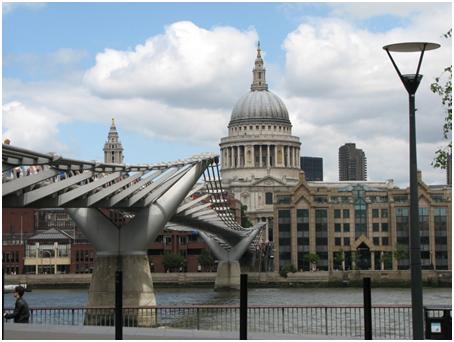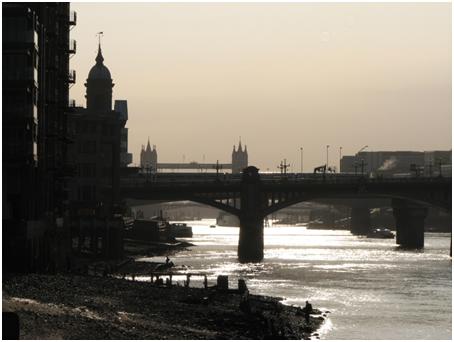ロンドン/英国 ~Trends driving towards a more “closed Europe” in 2016~
欧州・CIS
2016年02月24日
Sumitomo Corporation Europe Limited
Graham Holman
• A European identity crisis

In January, the Eurasia Group think-tank identified "closed Europe" as number 2 in its "Top Risks 2016". Last year, "the politics of Europe" was number 1.
This year is reported as being another crucial period in challenging the principles on which the EU was founded as well as deciding questions over the direction of Europe's identity. As we know, this is being caused by a combination of the migrant and refugee crisis as well as other fall-out from conflicts in the Middle East, terrorism, and populist political pressures.
Accordingly, instead of economic threats, such as to the currency union, the issues of most concern are the rise of populism and nationalism, the erosion of the rule of law, and the risks to the integrity of the Schengen agreement on open borders. Already this year, Sweden re-imposed controls on visitors crossing from Denmark, followed by a Danish announcement that it would impose new controls on its own border with Germany. The new controls are not just a reverse of the 1995 Schengen accord, but also against the spirit of the post-1945 Nordic Council tradition of open borders that includes the five-nation Nordic Passport Union, which came into force in 1957.
Mrs Merkel, "the biggest advocate of open Europe" has also been given credit as the "consistent leader of Europe since the 2008 financial crisis, and the European Union's saviour through her stalwart handling of the Greek crisis". The domestic and international political pressure she is now facing, however, is seen to be dramatically changing the ability of the EU to respond collectively to the current crises.
Some of the consequences are reported to be that;
- The ongoing fall-out from the migrant and refugee issue will "undermine Germany's political capital" in Europe (ie. ability to lead a solution, such as allocation of quotas of refugees).
- A growing fear of ISIS and international terrorism more broadly risks the Schengen agreement being broken in 2016, particularly as more governments take related legal action (as with Slovakia's challenge in the European Court of Justice).
- A divergence of national perspectives and priorities will dominate European policy: "Closed Europe is first and foremost a Europe that closes itself up to the outside world, and whose countries close themselves up to one another."
There is also expected to be a "next-stage surge of populism" whereby trends already apparent in Denmark, Greece, Hungary, Poland, Spain, and Sweden will spread across the continent, forcing establishment parties to amend their political platforms to maintain voter appeal.
• The UK referendum
In relation to the EU thinking seriously about its own future, including how it should engage with the wider world, the British referendum is focusing the urgency of the task. On February 2nd, Donald Tusk, President of the European Council, responded to the "four baskets" of David Cameron's reform proposals covering 'economic governance', 'competitiveness', 'sovereignty' and 'social benefits and free movement'. Cameron has announced that the draft reform deal delivers "substantial changes" although there are many uncertainties to refine before the next summit in Brussels on February 18th and 19th. Cameron also faces considerable Euroscepticism at home over the draft, in particular on its responses to restricting welfare payments to migrants and on the effectiveness of the "emergency brake" protecting the City of London from Eurozone regulation. In Tusk's letter to Members of the European Council he stated that, "The clear objective is to have an agreement of all 28 at the February European Council. To succeed we will all need to compromise. To fail would be compromising our common future."
The referendum is expected to take place on June 23rd.
Polarisation over key issues of voter concern, including migration, currently seems to be favouring the 'Outers' in Britain's forthcoming EU referendum. One significant reason, is that they are focusing on a 'big picture' with themes that resonate; questioning why the UK Parliament should not have full sovereignty restored as well as challenging unlimited free movement, irrespective of the pace of change and social impact. Academic commentators have argued that the 'Inners' and liberal mainstream have only responded with dry economics and passionless 'open Europe' advocacy without similarly engaging hearts and minds despite the success of a united Europe securing internal peace for over 70 years.
On January 11th the FT, reporting on the results of a survey of interviewees from the UK's 500 largest companies, commented that "the majority of leaders (61%) at Britain's biggest companies said leaving would not damage their prospects, suggesting the impact of a Brexit could be less negative for business than In campaigners have suggested".
It was also noted that, "A large majority, 87%, want to stay in the EU both personally and professionally, but half of the respondents want Britain to return to being part of an EU economic community, without political links." With regard to the UK's trade with the rest of the world, "half of company bosses said leaving would make no difference, either positive or negative".
In relation to smaller businesses, a survey carried out last October by the Federation of Small Businesses found that 47% would vote to stay and 43% to leave.
The possibility of a UK exit should be considered to be significant.
• After a vote to 'Leave'

Under the terms of the EU Treaties, the UK would need to give two years' notice of its intention to leave. There would be a number of possible structural outcomes, such as re-joining the European Free Trade Association (EFTA) as a gateway to European Economic Area (EEA) membership and 'free movement' within the EU. This would mean, however, that the UK would have to follow many EU laws without having a voice or veto. Alternatively, as Switzerland has done, the UK could become a member of EFTA and negotiate its own Free Trade Agreement with the EU (although Switzerland is a member of Schengen). There is also the possibility of a Turkey-EU style Customs Union.
The biggest immediate impact on business, apart from the years of transitional uncertainty, is reported to be in relation to the financial services sector which benefits from 'passporting' rights allowing access to the EU market. Similar impacts may well be felt in the insurance, investment funds and capital markets sectors.
In addition to the position on access to EU markets, the extent to which trading and investment activities would be affected may well mainly depend upon any changes in taxes, such as VAT, customs duties, withholding tax etc. and any restrictions on the flow of money among members of group companies in the EU and those in the UK.
Another obvious area of potential change concerns citizens from EU Member States currently enjoying the automatic right to live and work in the UK (and vice versa with UK citizens in the EU). Although fears have been expressed that such rights would no longer continue upon the UK’s exit, all such citizens should be protected under the Vienna Convention on the Law of Treaties 1969 and the ‘acquired rights’, which individuals build up and hold over time, despite subsequent treaty changes enacted by their nations. Accordingly, the right of freedom of movement granted under the original Treaty should basically be honoured for those citizens already living in another EU Member State at the time of the UK’s withdrawal.
記事のご利用について:当記事は、住友商事グローバルリサーチ株式会社(以下、「当社」)が信頼できると判断した情報に基づいて作成しており、作成にあたっては細心の注意を払っておりますが、当社及び住友商事グループは、その情報の正確性、完全性、信頼性、安全性等において、いかなる保証もいたしません。当記事は、情報提供を目的として作成されたものであり、投資その他何らかの行動を勧誘するものではありません。また、当記事は筆者の見解に基づき作成されたものであり、当社及び住友商事グループの統一された見解ではありません。当記事の全部または一部を著作権法で認められる範囲を超えて無断で利用することはご遠慮ください。なお、当社は、予告なしに当記事の変更・削除等を行うことがあります。当サイト内の記事のご利用についての詳細は「サイトのご利用について」をご確認ください。
 SCGRランキング
SCGRランキング
- 2025年6月27日(金)
日経QUICKニュース社の取材を受け、当社シニアエコノミスト 鈴木 将之のコメントが掲載されました。 - 2025年6月27日(金)
『日本経済新聞(電子版)』に、当社シニアエコノミスト 鈴木 将之のコメントが掲載されました。 - 2025年6月16日(月)
『時事通信』に、当社チーフエコノミスト 本間 隆行が寄稿しました。 - 2025年6月13日(金)
『日刊工業新聞』に、当社チーフエコノミスト 本間 隆行のコメントが掲載されました。 - 2025年6月13日(金)
『日刊工業新聞』に、当社チーフエコノミスト 本間 隆行のコメントが掲載されました。

